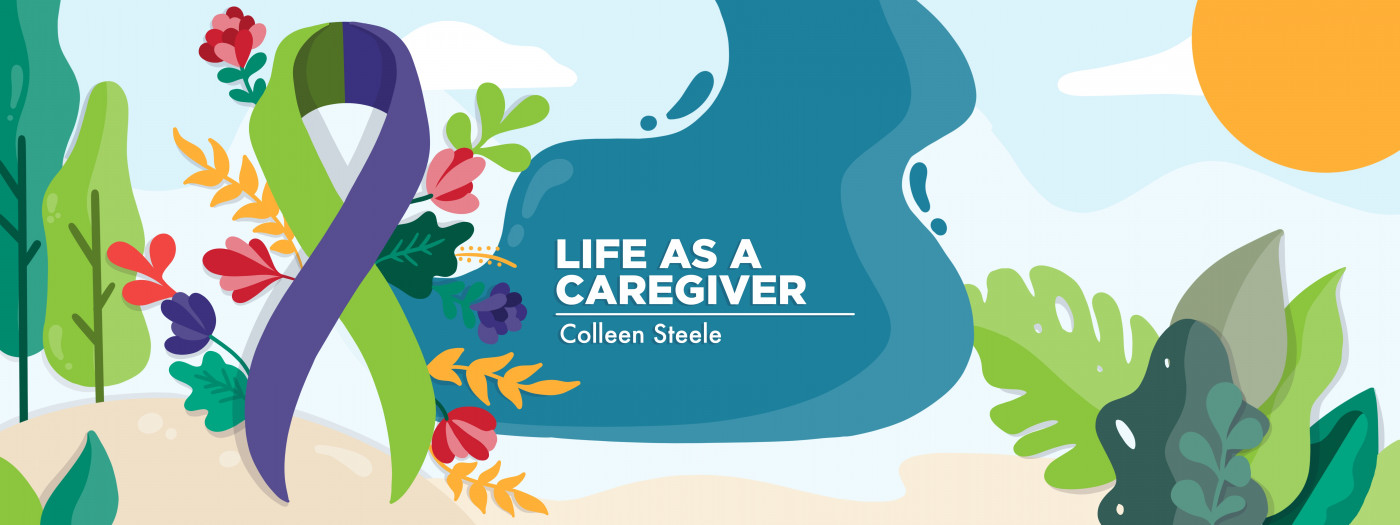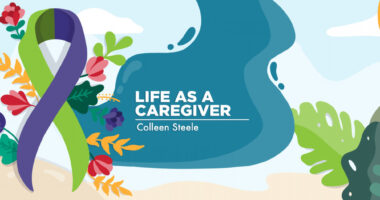A Worrier Warrior Who Learned Not to Sweat the Small Stuff

Stress was familiar to me long before my son Cullen was diagnosed with pulmonary arterial hypertension (PAH). Bruce Springsteen sings about being “Born to Run,” but when you run, you might trip. I was born to worry about things like that and so much more.
Not that I haven’t enjoyed life, because I have. In October, I will celebrate my 50th birthday, and over these past five decades, I have experienced a great deal of joy, celebrations, achievements, success, adventures, and milestones.
And through it all, I have been a functioning worrier.
Before events big or small, I run through scenarios in my mind and plan for various possibilities. In my youth, I carried worry without noticing its weight. I dealt with unexpected results with mild angst and quick recovery. But by the mid-1990s, I felt a shift in how I was carrying my concerns.
Life was changing fast, and responsibilities were growing. I graduated from college and moved halfway across the country, leaving behind family, friends, and the familiar. I got married and worked jobs that didn’t suit me until I finally found one that did. And at the end of the decade, I gave birth to my first child, Cullen.
It was an exciting and frustrating time because no amount of worry or planning ever made life perfect. Now I know it never will. Realizing my method of survival wasn’t foolproof was a rude awakening.
I admired people who could go with the flow, shrug off the unpleasant, and keep trucking along. I searched for personal change and a more carefree attitude like theirs in a little self-help book called “Don’t Sweat the Small Stuff … and it’s all small stuff,” by Richard Carlson.
The encouraging synopsis on the inside flap of the dust cover lured me in: “Its one hundred stress-reducing strategies have helped readers around the world live calmer, happier lives and enjoy deeper, more satisfying relationships with friends and loved ones.”
Reading it changed my life – for a few weeks. Then slowly, the old Colleen returned. I welcomed her back and leaned on the adage, “It takes all kinds to make a world.” I believed someone needed to sweat the small stuff, the big stuff, and everything in between, and I made peace with being that person.
Fast-forward to 2008, when 8-year-old Cullen was diagnosed with PH. The introduction to the book I read years ago pointed out how many people live as if life were one great big emergency. But life for my family became precisely that: one big emergency.
My dad believes that everything happens for a reason. Maybe I was born a worrier so that I could help my future son through PH and a heart and double-lung transplant.
As I previously mentioned, I am a functioning worrier. Not only have I considered every worst-case scenario my son could experience, but I also constantly ready myself, Cullen, and the rest of our family to take on whatever emergency comes our way. I’m not a worrywart, I’m an advocate!
But guess what 13 years of advocacy have taught me? How not to sweat the small stuff. I don’t believe everything is small stuff, as the book title claims, but there is an awful lot in life that is. My experience has been that focusing too much on those things is a waste of time and energy when dealing with the big stuff like PH and transplants.
Those experiences have helped me appreciate the value in many of the 100 stress-reducing strategies covered in Carlson’s book.
Some examples: I have made peace with imperfection; developed my compassion; learned to live in the present moment; become the first to act lovingly and reach out; surrendered to the fact that life isn’t fair; sought to understand things; become a better listener; chosen my battles wisely; viewed the glass as already broken (and everything else, too); tried to be grateful when I’m feeling good and graceful when I’m feeling bad; striven to be flexible with changes in my plans; remembered to focus on little things when being helpful; and trusted my intuitive heart.
I highly recommend picking up “Don’t Sweat the Small Stuff” and learning about the other 87 tips. But approach them with an acceptance that it’s not humanly possible to achieve all 100 strategies. Accomplishing any of them takes life experience, not just reading the words.
I know this worrier advocate will be rereading the book, because I’m still searching for more peace in my life, and I suspect that we all are.
***
Note: Pulmonary Hypertension News is strictly a news and information website about the disease. It does not provide medical advice, diagnosis, or treatment. This content is not intended to be a substitute for professional medical advice, diagnosis, or treatment. Always seek the advice of your physician or other qualified health provider with any questions you may have regarding a medical condition. Never disregard professional medical advice or delay in seeking it because of something you have read on this website. The opinions expressed in this column are not those of Pulmonary Hypertension News or its parent company, Bionews, and are intended to spark discussion about issues pertaining to pulmonary hypertension.








Sandra Greenberg
In Jen’s article, she mentioned paliative care. I had not heard of this. I’d like more information; possibly a discussion topic. My counselor has said my depression is a result of not accepting PAH and the consequences. I know that is true. I’d be happy to stay in denial. Paliative care appears to guide us to accept PAH and its result
Colleen Steele
Sandra, I'm sorry for not seeing this comment sooner. How are you doing? I agree, Palliative Care would make an important topic in the forums. I will suggest that we start one!
Thank you for reading!